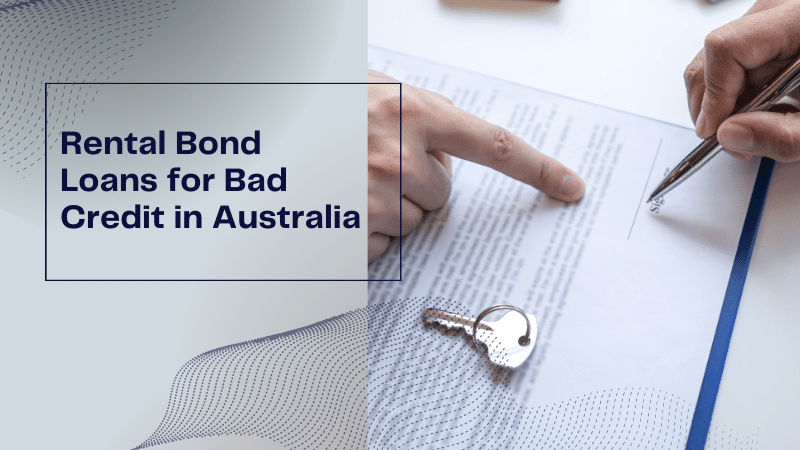Navigating the Financial Impact of Car Ownership: How Can Buying a Car Affect Your Finances? (2023 Guide)

Discover the financial implications of buying or leasing a car in 2023, and learn how to make the best choice for your unique situation.
Purchasing a car is a significant financial decision that can impact your finances in various ways. The choice between buying and leasing, as well as financing options, can determine your monthly expenses and the overall cost of car ownership. In this guide, we will explore how buying a car can affect your finances and provide helpful tips for making the best decision based on your needs and preferences.
Traditional Loans
When considering how buying a car can affect your finances, it’s crucial to understand the ins and outs of traditional loans. These loans are offered by banks, credit unions, and other financial institutions, and can be a popular choice for financing a car purchase. Let’s take a closer look at the various aspects of traditional loans.
Interest Rates
Interest rates for traditional auto loans can vary depending on factors such as your credit score, loan term, and the lender. A higher credit score usually results in a lower interest rate, while a longer loan term can lead to a higher rate. It’s essential to shop around and compare interest rates from multiple lenders to find the best deal.
Loan Terms
The loan term is the length of time you have to pay back your car loan. Common loan terms range from 36 to 72 months, with some lenders offering terms as long as 84 months. While a longer loan term can result in lower monthly payments, you’ll end up paying more interest over the life of the loan.
Down Payments
A down payment is the initial amount of money you pay upfront when buying a car. The more you put down, the less you need to borrow, which can result in lower monthly payments and less interest paid over the life of the loan. Lenders may require a minimum down payment, often around 10% to 20% of the purchase price, but this can vary depending on your credit history and the lender’s requirements.
Preapproval
Before shopping for a car, it’s a good idea to get preapproved for a loan. Preapproval means a lender has agreed, in principle, to provide you with a loan up to a certain amount. This can give you a better idea of your budget and make the car-buying process smoother, as you’ll already have financing in place.
Secured vs. Unsecured Loans
Traditional auto loans are typically secured, meaning the car serves as collateral for the loan. If you fail to make your loan payments, the lender can repossess the car to recoup their losses. Unsecured loans, which do not require collateral, are less common for auto financing and often come with higher interest rates due to the increased risk for the lender.
Early Repayment Penalties
Some lenders charge a penalty for paying off your car loan early, as they lose out on potential interest payments. Be sure to read the fine print and understand any potential penalties before signing on the dotted line.
By understanding these aspects of traditional auto loans, you’ll be better equipped to make an informed decision when considering how buying a car can affect your finances.
Dealership Financing
Dealership financing is another option for those looking to purchase a car, and understanding its nuances can help you make an informed decision about how buying a car can affect your finances. When you choose dealership financing, the dealer either provides the financing themselves or partners with outside lenders. Here’s a closer look at the various aspects of dealership financing.
In-house Financing
Some dealerships offer in-house financing, which means they lend you the money directly to purchase a car from their inventory. This type of financing can be more convenient, as you can arrange everything at the dealership, and it may be a viable option for those with less-than-perfect credit. However, it’s essential to compare interest rates and terms with traditional loans to ensure you’re getting the best deal.
Partnering with Lenders
Many dealerships work with a network of outside lenders to provide financing options for their customers. When you choose this route, the dealership submits your credit application to multiple lenders, who then compete to offer you the best interest rate and terms. This can help you secure a better deal than going directly to a single lender.
Manufacturer Incentives
Dealerships often offer special financing deals in partnership with car manufacturers. These incentives can include low interest rates, cash rebates, or discounted lease rates. Be sure to research current manufacturer incentives and ask the dealer if they are available on the car you’re interested in.
0% APR Offers
Some dealerships and manufacturers offer 0% APR (annual percentage rate) financing deals for a limited time. These offers can save you a significant amount of money in interest payments. However, they’re typically only available to buyers with excellent credit, and you may need to forgo other incentives, like cash rebates, to take advantage of the 0% APR offer.
Negotiating with the Dealership
Dealership financing can sometimes be negotiable. Don’t hesitate to ask the dealer if they can offer a better interest rate or terms, as they may have some flexibility to help secure the sale. Additionally, be prepared to negotiate the purchase price of the car itself, as this can affect your overall financing costs.
Watch Out for Hidden Fees
When financing through a dealership, it’s crucial to read the fine print and ask about any hidden fees or charges. For example, some dealerships charge a documentation fee or a prepayment penalty. Make sure you understand all the costs involved before signing the financing agreement.
By considering these aspects of dealership financing, you’ll be better prepared to make an informed decision about how buying a car can impact your finances.
Leasing
Leasing is yet another option to consider when exploring how buying a car can affect your finances. With leasing, you essentially rent a car for a set period of time, usually 2 to 3 years, and then have the option to purchase the vehicle or return it and lease a new one. Here’s a closer look at the various aspects of leasing and how it might impact your financial situation.
Monthly Payments
Lease payments tend to be lower than loan payments for the same car because you’re only paying for the vehicle’s depreciation during the lease term, plus interest and fees. This can make leasing an attractive option for those looking to drive a new car with lower monthly expenses.
Down Payment and Fees
Leases often require a down payment, which can range from a few hundred to a few thousand dollars. This amount, along with any fees such as acquisition or disposition fees, will affect the overall cost of leasing.
Mileage Limits
Lease agreements typically include a mileage limit, which is the maximum number of miles you can drive the vehicle during the lease term. If you exceed the limit, you’ll be charged a fee for each additional mile driven. Be sure to carefully consider your driving habits and needs before choosing a lease with a specific mileage limit.
Wear and Tear
Leased vehicles must be returned in good condition, with normal wear and tear. If the vehicle has excessive wear and tear, such as scratches, dents, or worn tires, you may be charged additional fees. It’s important to maintain the vehicle throughout the lease term to avoid these extra costs.
Lease End Options
At the end of the lease term, you typically have three options:
- Purchase the vehicle at its residual value, which is the predetermined amount agreed upon at the beginning of the lease.
- Return the vehicle and lease a new one.
- Return the vehicle and walk away, provided you’ve met all the lease terms and conditions
Before committing to a lease, consider your long-term plans and preferences to determine if leasing is the best financial option for you.
Assess Your Needs
Before diving into the world of car buying or leasing, it’s crucial to assess your needs and preferences. Here are some factors to consider:
Budget: Determine how much you can afford to spend on a car, including the purchase price or lease payments, insurance, maintenance, and fuel.
Lifestyle: Consider how you plan to use the car, such as for daily commuting, weekend trips, or family outings. This will help you narrow down your options based on factors like fuel efficiency, size, and cargo space.
Length of Ownership: Think about how long you plan to keep the car. If you enjoy driving a new vehicle every few years, leasing may be a better option. If you prefer long-term ownership, buying may be the right choice.
New vs. Used: Determine whether you want a new or used car, keeping in mind factors like warranty, reliability, and overall cost.
By assessing your needs, you’ll be better prepared to make an informed decision about how buying or leasing a car can affect your finances.
Compare Costs
Comparing the costs of buying versus leasing is essential for understanding the financial impact of your decision. Here’s how to approach this comparison:
Total Ownership Cost: Calculate the total cost of ownership for buying a car, including the purchase price, loan interest, insurance, maintenance, fuel, and depreciation.
Total Lease Cost: Calculate the total cost of leasing, including the down payment, lease payments, insurance, maintenance, and any end-of-lease fees.
Residual Value: When comparing buying and leasing, consider the residual value of the car at the end of the lease term. This is the amount you’ll need to pay if you decide to buy the car after the lease expires.
By comparing these costs, you can gain a clearer understanding of the financial implications of buying versus leasing and make the best choice for your situation.
Research and Negotiate
To ensure you get the best possible deal when buying or leasing a car, it’s essential to research your options and be prepared to negotiate. Here are some steps to follow:
Research Models: Start by researching different car models that fit your needs and preferences. Look for information on reliability, safety ratings, and customer reviews.
Compare Financing Options: Shop around for the best interest rates and terms for both traditional loans and dealership financing. Don’t forget to consider any available manufacturer incentives or lease deals.
Get Multiple Quotes: Contact multiple dealerships to get quotes on the car you’re interested in, and use this information to negotiate the best price.
Negotiate the Trade-in Value: If you’re trading in your current car, be prepared to negotiate its value. Research the market value of your car and use that information to ensure you receive a fair trade-in offer.
Review the Contract: Before signing any financing or lease agreement, carefully review the terms and conditions, and ask about any hidden fees or charges.
By thoroughly researching your options and negotiating with dealerships, you can minimise the financial impact of buying or leasing a car and make the best decision for your financial health.
FAQs
How can I decide if buying or leasing is better for me?
To determine whether buying or leasing is the better option for you, consider factors such as your budget, lifestyle, length of ownership, and whether you prefer a new or used car. Additionally, compare the total costs of ownership and leasing to get a clear picture of the financial implications of each option.
Can I negotiate the price of a leased car?
Yes, you can negotiate the price of a leased car, which is also known as the capitalised cost. Lowering the capitalised cost can lead to lower monthly lease payments.
Q: Is it better to get a loan from a bank or finance through the dealership?
It depends on your individual circumstances and the available interest rates and terms. It’s best to shop around and compare financing options from both banks and dealerships to find the best deal for your situation.
Q: What factors affect my interest rate for an auto loan?
Factors that affect your interest rate for an auto loan include your credit score, loan term, the lender, and market conditions. A higher credit score and shorter loan term generally result in lower interest rates.
Q: Can I lease a used car?
Yes, some dealerships offer used car leasing, although it’s less common than new car leasing. Used car leases can be a cost-effective option, but it’s essential to research the vehicle’s history and condition before committing to a lease.
Q: What happens if I want to end my car lease early?
Ending a car lease early may result in fees and penalties, depending on the terms of your lease agreement. Some options for ending a lease early include transferring the lease to someone else, buying out the lease, or returning the vehicle and paying any applicable fees.
Understanding how buying a car can affect your finances is essential for making the best decision for your unique situation. By considering factors such as traditional loans, dealership financing, leasing, assessing your needs, comparing costs, and researching and negotiating, you can minimise the financial impact of car ownership and make an informed choice.
LendExpress.com.au does not list all the lenders in the market. The lenders listed in this article are not representative of all the lenders available in the market. There may be other loan providers available that are not listed here. LendExpress.com.au may have a commercial arrangement with lenders featured on this site.
LendExpress.com.au believes all information to be accurate on the date published.
This information is general and does not take into account your specific personal situation. For advice, seek a professional advisor. For debt problems and free advice about debts, contact the National Debt Helpline on 1800 007 007.



